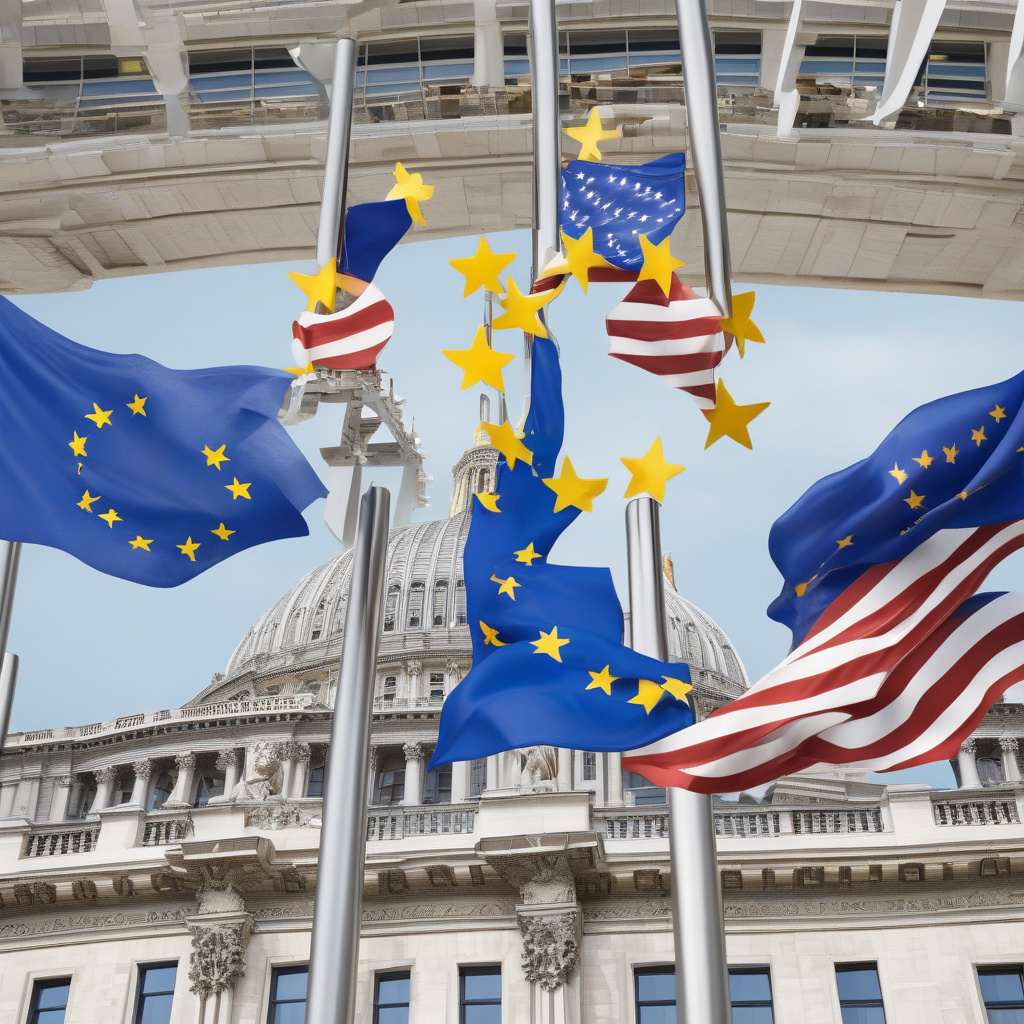The Future of Digital Regulation: Navigating the EU-US Tech Clash
In the ever-evolving realm of digital regulation, the European Union (EU) and the United States (US) find themselves at a crossroads. The EU’s recent introduction of the Digital Markets Act (DMA) and the Digital Services Act (DSA) marks a bold step towards reining in the power of tech giants and asserting digital sovereignty. On the other side of the Atlantic, the US is grappling with its own approach to regulating Big Tech, with a greater emphasis on fostering innovation and competition.
The stage is set for a potential transatlantic clash as Brussels and Washington hold contrasting views on how to address the dominance of tech behemoths such as Google, Facebook, Amazon, and Apple. The EU’s DMA aims to create a level playing field by imposing strict rules on gatekeeper platforms, preventing them from favoring their services or products over competitors. Similarly, the DSA focuses on online content moderation, transparency, and accountability.
In contrast, the US has taken a more hands-off approach to regulating tech companies, with a strong belief in the power of innovation to drive economic growth. Silicon Valley has long been a symbol of American entrepreneurship and technological advancement, leading US lawmakers to tread carefully when it comes to imposing stringent regulations that could stifle innovation.
The diverging paths of the EU and the US in digital regulation raise important questions about the future of tech governance and the global digital landscape. Could these tensions lead to a reshaping of the digital economy as we know it?
One key point of contention between the EU and the US is the issue of data privacy. The EU has been at the forefront of data protection with the implementation of the General Data Protection Regulation (GDPR), which sets a high standard for safeguarding consumer data. In contrast, the US has yet to enact comprehensive federal data privacy legislation, leading to a patchwork of state laws that do not provide the same level of protection.
The recent ruling by the Court of Justice of the European Union (CJEU) invalidating the Privacy Shield agreement, which allowed for the transfer of personal data between the EU and the US, further highlights the differences in approach towards data privacy. As data continues to be the lifeblood of the digital economy, finding common ground on data protection will be crucial for transatlantic data flows and digital trade.
Another area of contention is the issue of antitrust enforcement. The EU has been more aggressive in taking on tech giants for anticompetitive behavior, resulting in hefty fines and new regulations aimed at curbing their power. In contrast, US antitrust laws have faced criticism for being outdated and ineffective in addressing the market dominance of Big Tech.
The recent antitrust lawsuits filed against companies like Facebook and Google in the US signal a shift towards tougher enforcement, but whether these efforts will be enough to level the playing field remains to be seen. The differing approaches to antitrust enforcement pose a challenge to finding common ground in regulating tech companies across the Atlantic.
As the EU and the US navigate these complex issues of digital regulation, the global implications are significant. The outcome of this transatlantic tech clash could shape the future of digital governance, innovation, and competition worldwide. Finding a balance between fostering innovation and protecting consumers will be key to ensuring a fair and competitive digital marketplace for all.
In conclusion, the future of digital regulation between the EU and the US is at a critical juncture, with diverging views on how to address the power of tech giants. As Brussels pushes for digital sovereignty and strict regulations, Washington defends innovation and competition. Finding common ground on issues such as data privacy and antitrust enforcement will be essential for shaping the global digital landscape in a way that benefits both businesses and consumers.
#DigitalRegulation, #EUUSClash, #TechGiants, #DataPrivacy, #AntitrustEnforcement
